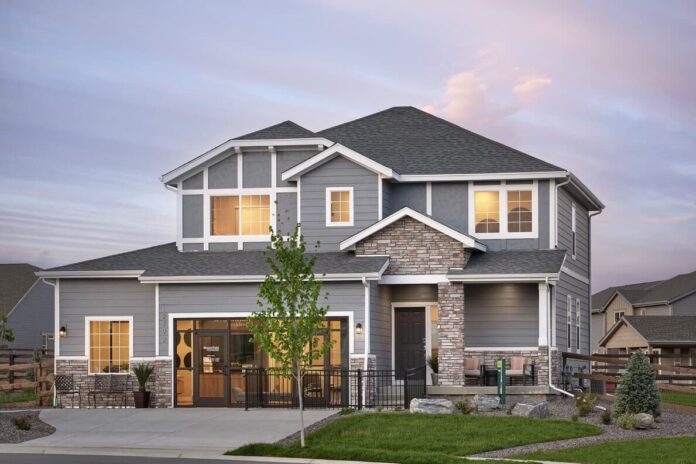
“There is something permanent, and something extremely profound, in owning a home.” – Kenny Guinn
What is a Home: A home is the place where one lives permanently, especially as a member of a family or household. Home is where you live: your house, apartment, or condo. It’s also the place we feel most comfortable, loved, and protected — where we most feel at home.
Most people feel safe and happy at home, even if it’s not perfect. It’s easy to find somewhere to live, but it’s tough to make a real home.
It is where we create memories with our loved ones and where we spend a significant portion of our lives.
In this article, we will explore
Facts and figures about buying a home for the first time
the importance of home in our lives and the various ways in which it impacts our well-being.
Advantages of buying a home
Disadvantages of Buying a home
10 things to consider when buying a Home for the first time
Facts and Figures About Buying Home for the First Time
Here are some facts and figures about buying a home for the first time:
Demographics
In 2020, first-time homebuyers accounted for 34% of all homebuyers in the US. (Source: National Association of Realtors)
The median age of first-time homebuyers is 32 years old. (Source: National Association of Realtors)
57% of first-time homebuyers are couples, 21% are single females, and 14% are single males. (Source: National Association of Realtors)
Finances
The median down payment for first-time homebuyers is 7%. (Source: National Association of Realtors)
71% of first-time homebuyers finance their home purchase with a mortgage. (Source: National Association of Realtors)
The average student loan debt for first-time homebuyers is $29,800. (Source: Student Loan Report)
Home Preferences
53% of first-time homebuyers prioritize location over size and amenities. (Source: Zillow)
62% of first-time homebuyers prefer a single-family home. (Source: National Association of Realtors)
45% of first-time homebuyers consider energy efficiency when buying a home. (Source: National Association of Home Builders)
Importance of Home
Home as a Place of Belonging
A home is also a place of belonging. It is where we feel connected to our family and friends. It is where we create traditions and memories that are passed down from generation to generation. Home is where we learn about our values and culture. It is where we feel a sense of identity and purpose. The feeling of belonging that home provides is essential to our sense of self and our well-being.
Home as a Place of Comfort
A home is a place of comfort. It is where we can relax and recharge. It is where we can be surrounded by the things we love, such as family, pets, and personal belongings. Home is where we can escape from the stress and demands of the outside world. The feeling of comfort that home provides is essential to our physical and emotional health.
Home as a Place of Growth
A home is also a place of growth. It is where we learn important life skills, such as cooking, cleaning, and managing finances. It is where we develop our social skills and learn how to interact with others. Home is where we learn about responsibility and accountability. The feeling of accomplishment and growth that home provides is essential to our personal development.
Home as a Safe Haven
A home is a place where we feel safe and secure. Our home provides us with a sense of protection and shelter from the outside world. We can be ourselves and let our guard down in the comfort of our homes. The feeling of safety and security that home provides is essential to our mental and emotional well-being.
Buying a home is the biggest financial decision many people make. As with any major decision, a key question to answer before proceeding: Why?
There is an emotional side to home ownership, particularly in the Nigeria – it’s often baked into people’s vision of the future or part of their dream,
The benefits of home ownership come with costs and limitations. For some, renting may be a better option. Consider the pros and cons of buying a house as you think through the process and before you make a decision.
Advantages of Buying a Home
Since inception, the biggest advantage of buying a home is long-term financial security. For decades, home ownership in Nigeria represented stability because the housing market almost always went up in value, rewarding homeowners with equity and also a way to borrow money, should the need arise.
Here are some of the advantages of buying a home;
A Good Long-Term Investment
Buying a house as shown over a long time is a good investment because houses and lands appreciate faster and give a very good ROI. For many homeowners who opted to sell during the past decade, the market growth provided remarkable equity. History shows a constant fluctuation of overall home prices and even periods of decline or flatness. Homes can lose value, but it doesn’t happen often. Long-term, housing is an investment sector that rarely disappoints.
Building Equity
Your equity is the difference between what you can sell the home for and what you owe. Equity grows as you pay down your mortgage. Over time, more of what you pay each month goes to the balance on the loan rather than the interest, building more equity.
Greater Privacy
You own the property, which means you can renovate it to your liking, a benefit that renters don’t enjoy.
Home Office
The work-at-home phenomenon may not vanish after the pandemic fades, which means more of us will need a home office. The right setup makes a difference in comfort and productivity. Those needing that work-at-home space can find it on the market – if they act quickly.
Stability
People tend to stay longer in a home they buy, if only because buying, selling and moving is difficult. Buying a home requires confidence that you plan to stay there for several years
Disadvantages of Buying a Home
Buying a new house costs money, and a lot of that money comes out of your pocket at the time of the purchase. Later, there are no guarantees that home prices will rise. And without a large down payment, it can take years for your home equity to accumulate.
Besides money, owning a home can be an anchor. If the housing market is down, you might not be able to sell or move when you want — or at the price you desire. If you are just starting out in your career and you’re not certain you live in a place where you want to be for a long time, home ownership can be an obstacle to finding a new job elsewhere.
Let’s look at some Disadvantages;
Less Mobility
If one of the advantages of homeownership is stability, that means it may take more thought to accept an attractive job offer requiring you to pick up and move to another city. The offset to this concern is the speed with which homes are selling.
Maintenance Costs
Contorting yourself to fit under the kitchen sink to fix a leak is a joy (not) for those who try it the first time. But when you own a home, you are the first line of repair, especially if you want to save money by doing it yourself, Bob Vila style. Some items do need professional attention. If the air conditioner goes out, you’re not only going to sweat until it’s fixed, you’ll also be writing a check to get the cool air flowing again. Some folks enjoy mowing the lawn; others don’t. That, and putting a new coat of paint on the house, trimming the bushes, cleaning the gutters, and shoveling the snow are all part of home ownership.
Equity Doesn’t Grow Immediately
Most of the payments go toward interest in the early years of a mortgage, so you don’t gain equity quickly unless property values in your area skyrocket and that has happened in many areas in the post-pandemic market. Those who want to build equity faster could apply a small extra amount to their principal each month, provided it fits the budget. Even $20-to-$50 extra every month specifically applied to the loan principal can help.
Property Values Can Fall
Your building will depreciate over time, especially if you don’t maintain it. This can make the value of the house fall.
10 Things to Consider When Buying a New Home for the First Time
Now let us discuss the 10 things to consider when buying a new home for the first time.
There are numerous problems faced while buying a home that you must overcome when looking for your dream home.
Purchasing a home is a complex process. Before finishing the acquisition of a home, one must respond to a number of questions.
Know your Budget
Even if there are many different home loan alternatives available today, it is still important to buy a property that falls within the budget. Be sure to consider not just the price of the home, but additional costs such as property taxes, insurance, and maintenance.
This will help you narrow down your search to homes within your affordable range. Finding a home that one can afford for the rest of their life is essential because home loans are long-term commitments. Determine the budget before concentrating on the size of the house one wants to purchase. The size and location of the house are the two key factors that matter most when setting the budget for the house.
Location of the House
Choosing the right location for a property is one of the biggest challenges a buyer encounters. When picking the site for your home, you must keep a number of variables in mind, including proximity to a market, accessibility to transportation, the presence of community facilities, the value of the property, etc.
You can choose the area that best fits your needs after evaluating these aspects. This comprehensive approach ensures that your chosen location aligns not only with your current lifestyle but also contributes positively to your long-term satisfaction in your new home.
Find the Right Property
To find your dream property, create a priority list. Do I need a detached, semi-detached, apartment, or condo. Also consider the Space like bedrooms, bathrooms, and compound size?
Ask yourself how much house is enough for you, from the number of bedrooms to bathrooms. Outdoor living space has become extremely important to buyers, according to the National Association of Realtors, and homes with decks, porches, fire pits, and swimming pools may cost more.
Hire a real estate agent
An experienced real estate agent can save you time and money by helping you find the right home and negotiating with the seller on your behalf. Agents are licensed professionals who know their markets well and can guide you through your homebuying journey.
Type of House
Is your taste more traditional, or more modern? And what type of neighborhood do you want to live in?Do you have visions of living in a traditional home in the city , one with a big yard and a houseful of kids and pets?
Maybe your spouse likes the idea of in-town living, a condo within walking distance of shops and restaurants. What about two or more stories vs. a single-level home? Do you envision a basement or garage where you could have a workshop or space for a home office?
Home inspection
A home inspection is a thorough examination of a property’s condition, identifying potential defects or issues.
Purpose of home inspection include; ddentify structural defects, detect hidden costs, negotiate better price, ensure safety, avoid costly surprise.
For you to be able to do this very well; Hire a licensed inspector, Visual examination of property, Inspection report highlighting defects, Review report with seller/agent
Due Diligence
Due diligence is a comprehensive review of a property’s documents, finances, and legal status.
Purpose of due diligence inclde; verify ownership, check land use, confirm property boundaries, review building approvals, identify potential liabilities
Due Diligence Process in Nigeria incude; verify property documents (C of O, deed, etc.), conduct title search, review building plans and approvals, check for outstanding debts or liens, research neighborhood and environmental concerns
Benefits of due diligence cannot be overemphasised. It includes: Informed decision-making, avoid costly surprises negotiate better price, ensure safety and security, protect investment etc
Here’s an explanation of emotional readiness and expectations when buying a house:
Emotional Readiness
Buying a house is a significant emotional investment. Consider: Stability and permanence, financial security, sense of belonging, emotional attachment, lifestyle changes
What are the Signs that you are Emotionally Ready to buy a house: Clear goals and priorities, financial stability, realistic expectations, ability to manage stress, long-term perspective
Expectations
You have to consider the following expectations like: Financial expectations (cost, ROI), lifestyle expectations (space, amenities), emotional expectations (happiness, security), practical expectations (commute, maintenance)
How can you Manage your Expectations:: Research and education, realistic budgeting, prioritizing needs over wants, flexibility and compromise, open communication with partners/family
Personal Fulfillment
Buying a home for the first time can bring immense personal satisfaction and fulfillment. Emotional benefits include: Sense of accomplishment and pride, Feeling of permanence and stability, Security and shelter for family, Sense of belonging and identity, Achievement of long-term goal
Finally, Embarking on the journey to homeownership as a first-time buyer can be both exciting and challenging. By understanding your budget, securing financing, working with professionals, and being patient and informed, you’ll pave the way for a successful and fulfilling homeownership experience.




























